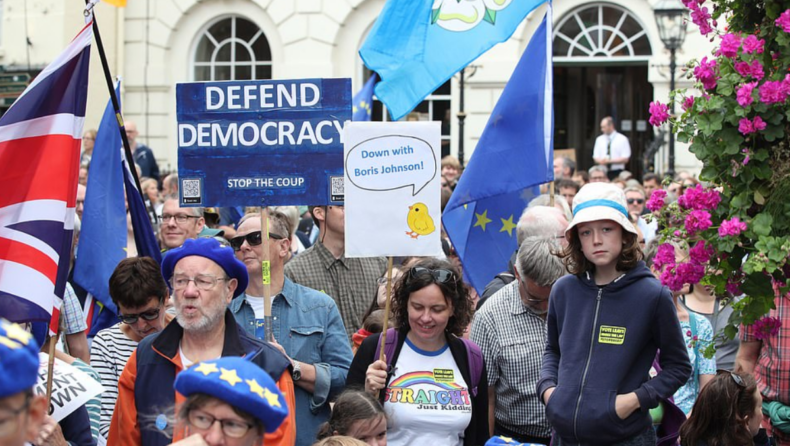
After surviving a confidence vote that highlighted the magnitude of the threat to his position, British Prime Minister Boris Johnson will be striving to shore up his position by presenting a
host of new ideas to senior ministers on Tuesday.
Following his victory in the confidence vote late Monday, U.K. Prime Minister Boris Johnson‘s first move will be persuading his most senior allies. He will switch on from his questions about his leadership.
Johnson won the vote late Monday by 211 votes to 148, which was enough to keep him from having to quit immediately.
But it resulted in a bigger mutiny within his party, leaving his party politically wounded and fighting to regain the trust of his colleagues and the wider public.
Senior allies to persuade
His first job will be persuading his most senior allies, many of whom will have undoubtedly run to replace him if he were forced out, that he can move on from questions about his leadership.
According to Johnson’s office, he will be using the meeting to lay out his vision for the coming weeks, including new measures to cut the cost of day-care and to assist more people in purchasing their own homes.
In a statement, Johnson states,
“This is a government that delivers on what the people of this country care about most.”
“We are on the side of the hardworking British people, and we will get the job done.”
Confidence Vote
After months of scandal involving lockdown-breaking parties at the heart of government and criticism of his response to an inflation-fuelled rise in the cost of living, Johnson’s party called the confidence vote.
In all, 41.2 percent of Conservative MPs voted against the Prime Minister, a greater percentage than the 40.9 percent who voted against Margaret Thatcher when she faced a leadership challenge in 1990. She resigned from her position 48 hours later.
Partygate Scandal
The vote scheduled for Monday after 54 Conservative MPs wrote to the 1922 Committee.
It is an organization of backbenchers, urging that Johnson’s leadership will be tested in the context of the “Partygate” scandal and the cost-of-living issue.
The Conservative Party and the Labour Party has been contacted for comment on Tuesday’s meeting by The Washington Post.
During the height of the COVID-19 pandemic, Johnson and the British government imposed strict social distancing measures and gathering limits.
“Partygate” refers to 16 social gatherings, attended by the prime minister and members of his staff.
It was exactly when the British government imposed strict social distancing measures and gathering limits.
The government’s actions were “impossible to defend”.
According to a highly anticipated study into the scandal issued last month, because residents were expected to “accept far-reaching limitations on their lives.”
Johnson was fined by police earlier this year for attending one party. It makes him the first prime minister to be punished for breaching the law while in office.
The British press reacts to the vote
The fact that the vote was a definitive outcome that allows Johnson to refocus on his political goals.
Johnson phrased it in the aftermath on Monday, not reflected on the front pages of British newspapers.
The result was seen as a “hollow win” by the Daily Telegraph. “PM survives… Just,” the Sun tabloid stated.
The Times leader column called the result a “pyrrhic victory,” saying Johnson’s political authority have been harmed. His party had become much more fragmented as a result of the narrow victory.
“If Mr Johnson is to avoid leading the Tories (Conservatives) to a calamitous defeat in the next election.
He will need to show a degree of grip and focus that has been largely absent .. ,” it stated.
For the next 12 months, Johnson’s Conservative Party rules will protect him from another confidence vote. But those rules might amend if there is the political will to do so.
Johnson’s predecessor, Theresa May, elected with a higher percentage of the vote in a similar confidence vote in 2018, only to quit six months later.













